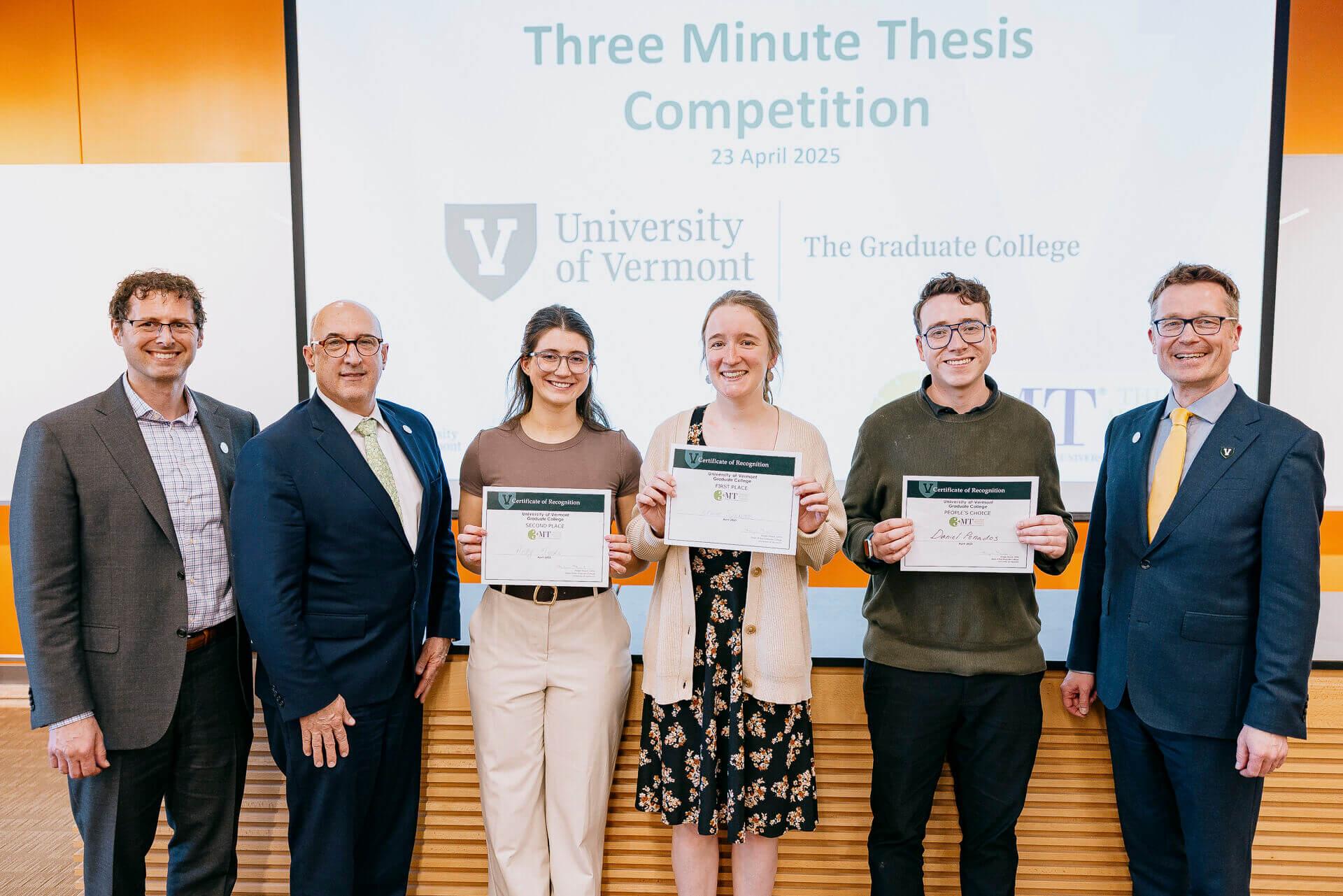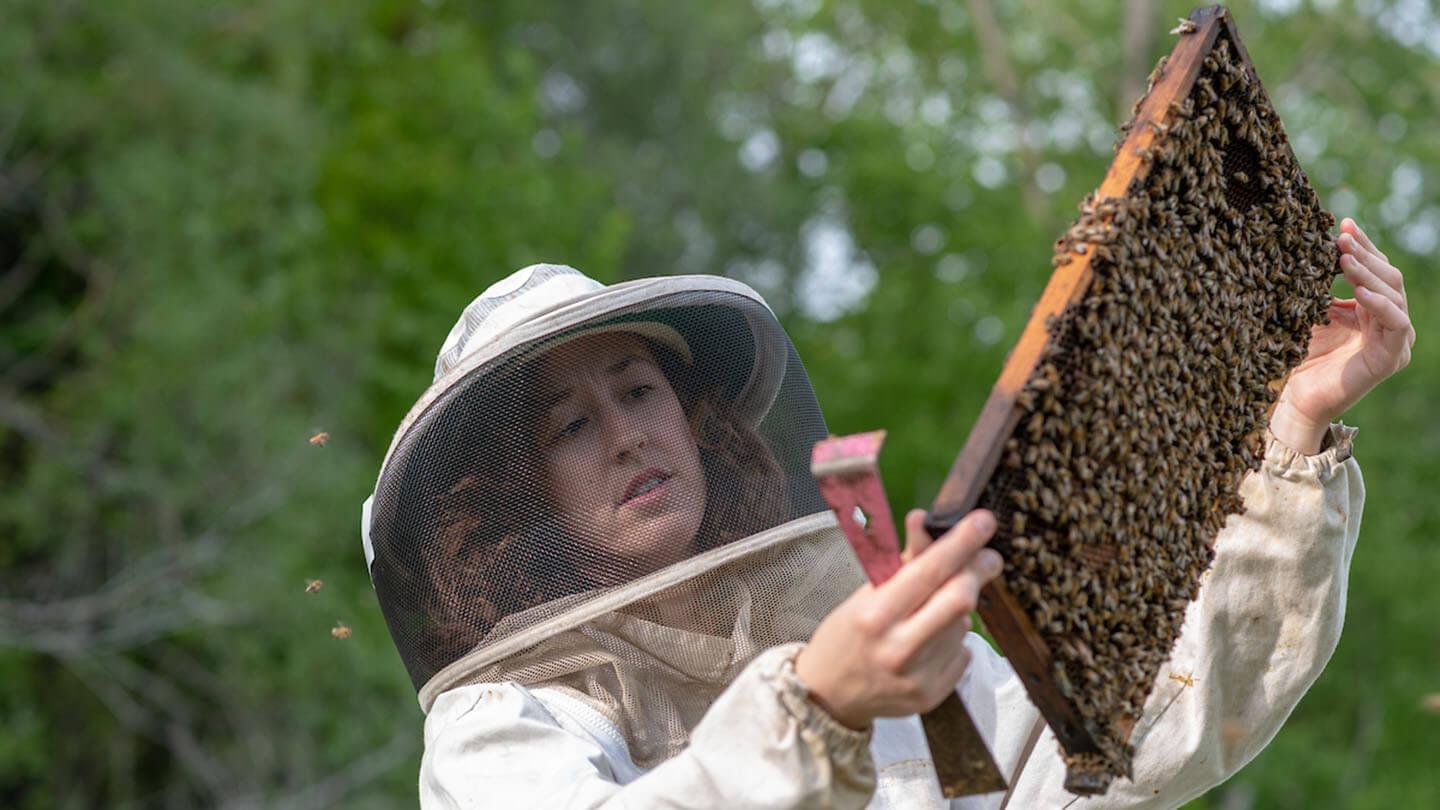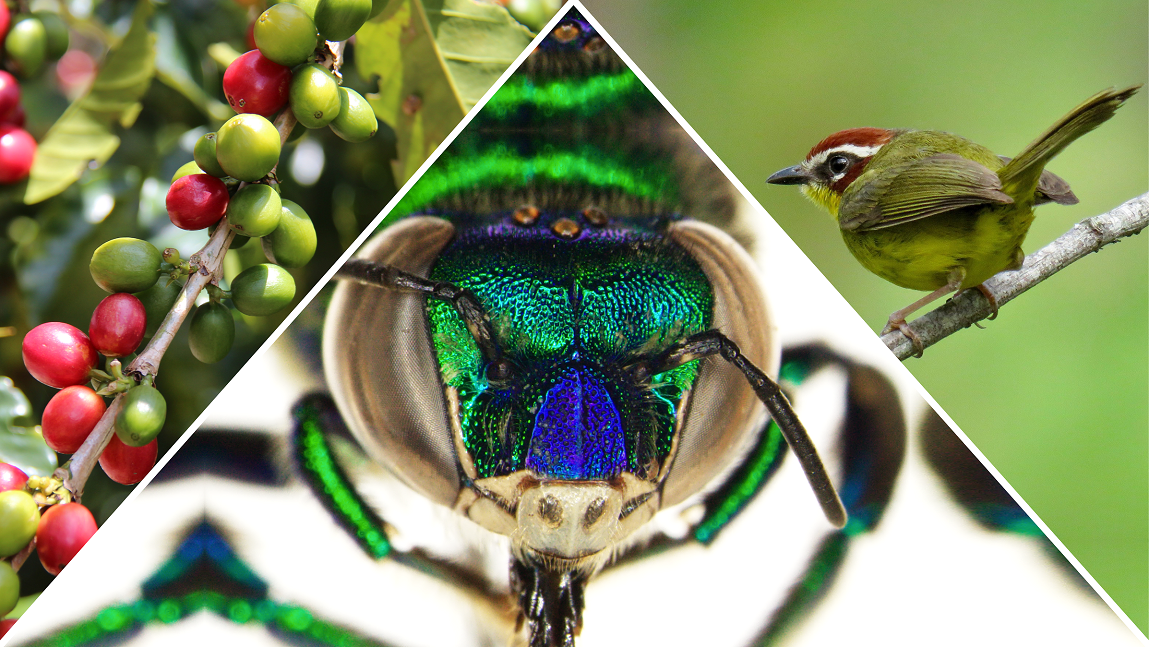For UVM graduate student Leslie Spencer, whose research focuses on why wild pollinators are critical for a healthy food system and what we can do to support them, the Three-Minute Thesis contest was a rehearsal of what will be a career-long need to convey to the public the importance of her research. Spencer won First Place in the Three-minute Thesis contest during UVM's Research Week.
Wild pollinators include thousands of species of bees and other insects, but importantly, not honeybees. Honeybees are domesticated, and they usually get the bulk of the attention in the "save the bees" movement, which is a bit misguided. As Spencer's research shows, there are thousands of species of wild bees as well as other native pollinators, such as beetles, flies, butterflies, moths, and wasps. There are over 350 wild bees in Vermont. Her goal is to ensure the public understands their critical ecological role and to encourage the actions needed for wild pollinator conservation.
"When it comes to wild bees, my work has three aspects: The first study looks at how warming temperatures are impacting the wild bees that pollinate our blueberry crops. We’re thinking about how that plant-pollinator relationship could be at risk as temperatures are warming, therefore, putting our beloved berries at risk.
"My second study looks at how to manage blueberry farms for wild bees while reducing damage from an invasive fruit fly pest. Basically, we want to encourage the good bugs and not the bad ones. We have a big issue with this invasive fruit fly – the spotted wing drosophila -- in Vermont.
"And in my third study, I'm working with Shelburne Farms to design educational programs all about wild pollinators that hopefully spark people to go home and take action to protect them. That's what we really need: a greater movement of people taking action in their own backyards. That's the power of pollinators compared to, let's say, penguins. With pollinators, we can do something tangible in our yards to help them. With penguins or many other endangered species, it's much harder to go home and do something to help conserve them."
Spencer's interest in pollinators originated during a summer break from her undergraduate studies when she worked on a farm in France that kept honeybees. "I got really captivated thinking about bees, how we care for bees, and the importance of them to our food. That was an aha moment for me."
When she returned to Tufts University in Boston that fall, she discovered a group called the Tufts Pollinator Initiative (TPI). "They were really focused on supporting wild pollinators in the city, specifically how to create biodiversity oases on our urban Tufts campus. To learn more, I joined TPI and also a research lab at Tufts focused on insect conservation. I dove right in." She began teaching in TPI’s campus gardens and researching wild bees herself. She ended up doing her senior thesis about the role of wild bees in coffee production in Costa Rica.
All bees and other pollinators are under threat from climate change, extreme weather events, pesticide use, and habitat loss. However, wild bees can face additional risks from pests and pathogens that spill over from domesticated honeybee colonies. Like other kinds of industrially reared livestock, honeybees raised in commercial settings are susceptible to pests and disease, and these diseases and pests have been shown to spill over into wild bee populations, putting them at risk. Exposure to one threat can make wild bees more vulnerable to others – for example, a 2023 study showed that warming temperatures made wild bees more vulnerable to pesticide exposure, pointing out the danger of multiple stressors to wild bee populations.
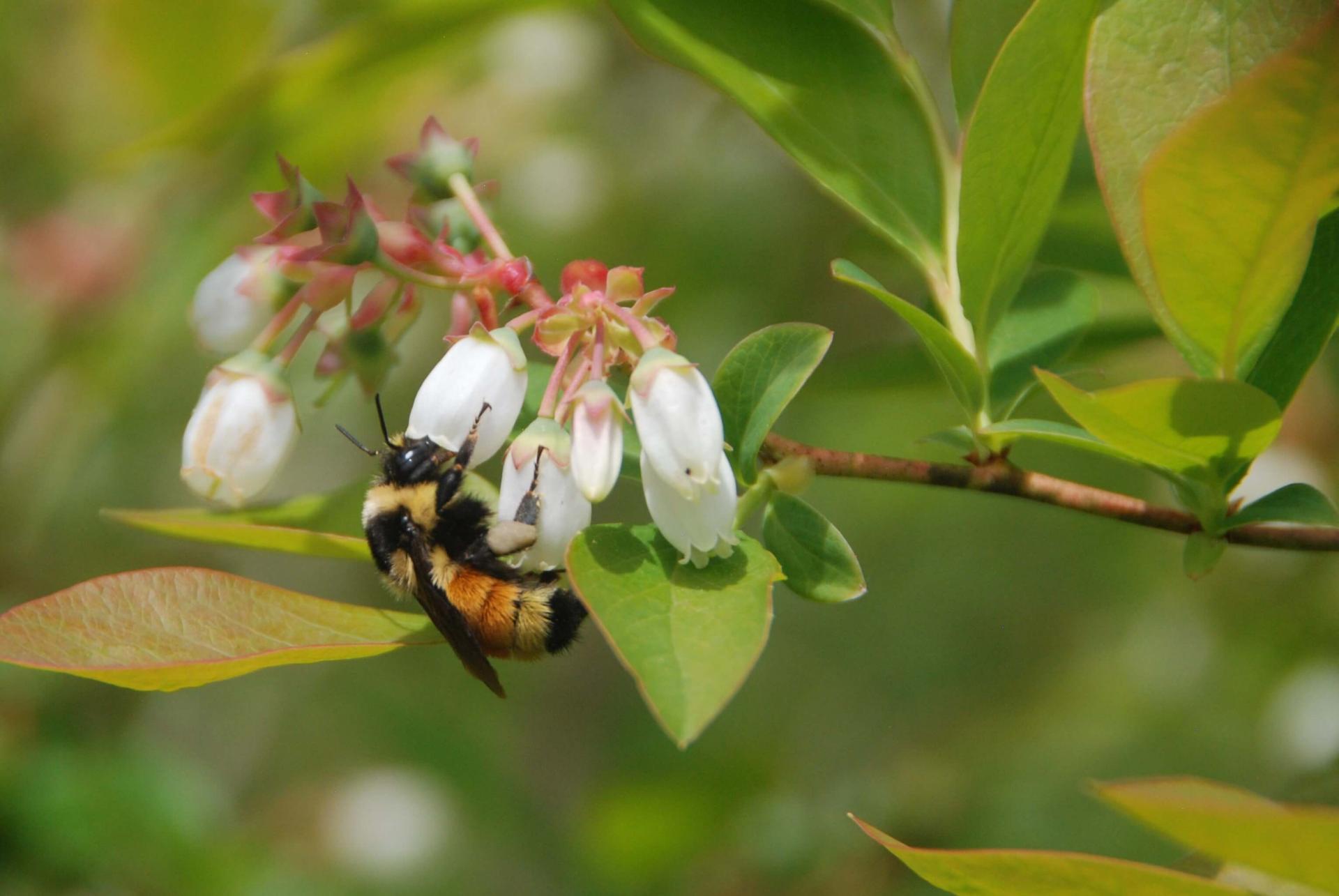
"We industrially rear our honeybees because we've eliminated most habitat for wild bees. So, we must bring in a honeybee hive if we want crop pollination on large-scale farms. Luckily, we don't really have that issue in Vermont because we still have a lot of natural areas for the wild bees to call home. But in other areas of the country, there is little to no wild habitat, so the bees must be domesticated in hives and brought to farms," explains Spencer.
Many Vermont fruit and vegetable crops depend largely on wild bees as pollinators, and past research at UVM has shown that native bees can often outperform honeybees too.
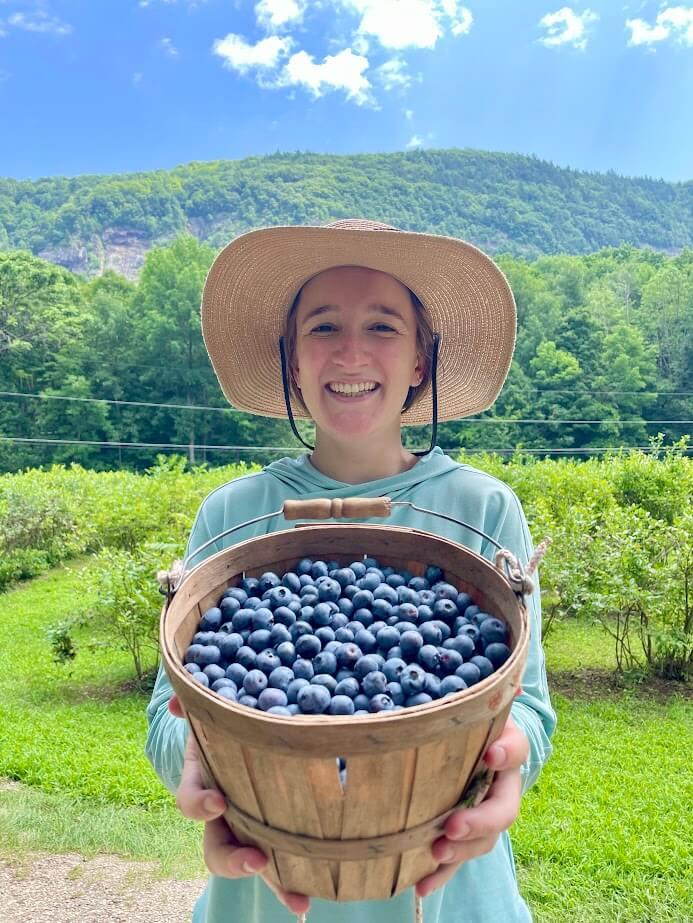
"In blueberries, for instance, we get both higher quality and quantity of fruit when it is pollinated by a wild bee, like a bumblebee for example, than when that same flower is pollinated by a honeybee, and there's a similar story for tomatoes, where pollination by wild bees makes more, bigger fruit. There are also specialist bees that pollinate specific plants, such as squash plants or tomatillos. Bringing in honeybees is an additional cost and an added labor task for farmers. "So, there's an incentive for farmers to support wild bees because they can get this service for free and also get a higher fruit yield in many cases," she adds.
Farmers and gardeners can support wild pollinators by eliminating pesticides. Last year, Vermont became the second state in the nation to pass a law eliminating seeds treated with the class of pollinator-harming pesticides called neonicotinoids. The second way to support wild pollinators is to provide them habitat by adding more native plants to the landscape.
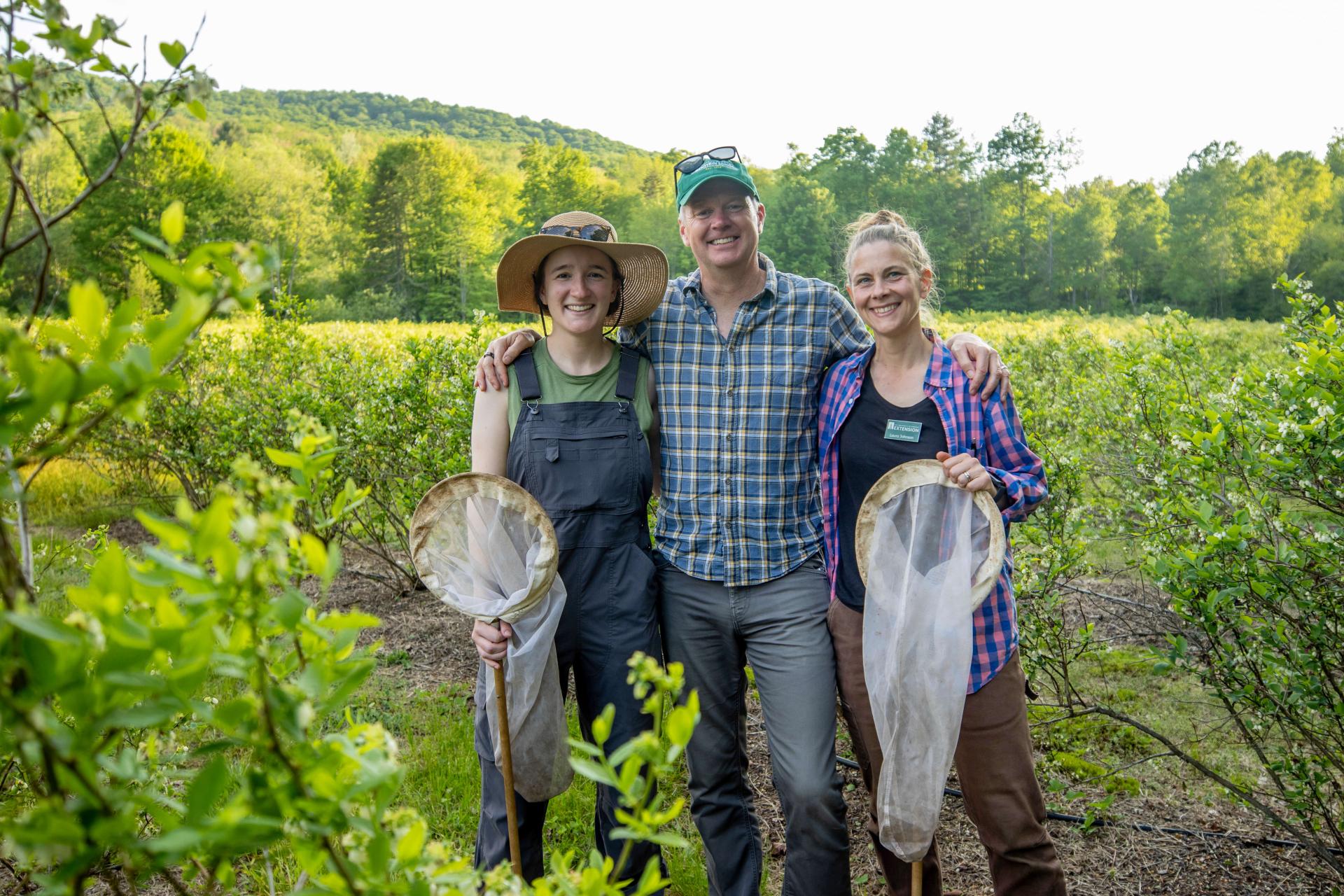
Spencer describes the need for multiple seasons of blooms among those native plants, "We have our earliest spring bees out right now starting in April, and we'll have bees out all the way until frost, probably in October or November. Different bees will come out at different times of the season, and so we need to make sure that the native plant habitat provides abundant pollen and nectar – their food – throughout the entire growing season. For example, just planting sunflowers that bloom in the fall isn't enough."
Spencer is a current Ph.D student whose advisor Stephanie Hurley is a faculty member of the Department of Agriculture, Landscape, and environment. Leslie is also a GUND Institute Graduate Fellow, and is part of Taylor Rickett’s lab group at the GUND Institute for the Environment. Her summer research is being supported by a $2000 research grant that she’ll use towards taking a bee identification course to improve her ability to teach others more identification skills. She was also recently awarded a grant from the One Hive Foundation in collaboration with staff at Shelburne Farms to support her work on a pollinator plan at Shelburne Farms. Her work there will focus on wild pollinator protection with an emphasis on visitor education. This will be achieved through the development of interactive, action-oriented educational programs that engage farm visitors in learning about pollinators and inspiring conservation action at home; an evaluation of the effectiveness of educational programming and conservation impact; the creation of a shareable library of pollinator resources for use by Shelburne Farms, educators, and community members, helping to ensure the sustainability of educational efforts beyond the initial project period; and staff training on the fundamentals of pollinator biology and conservation.
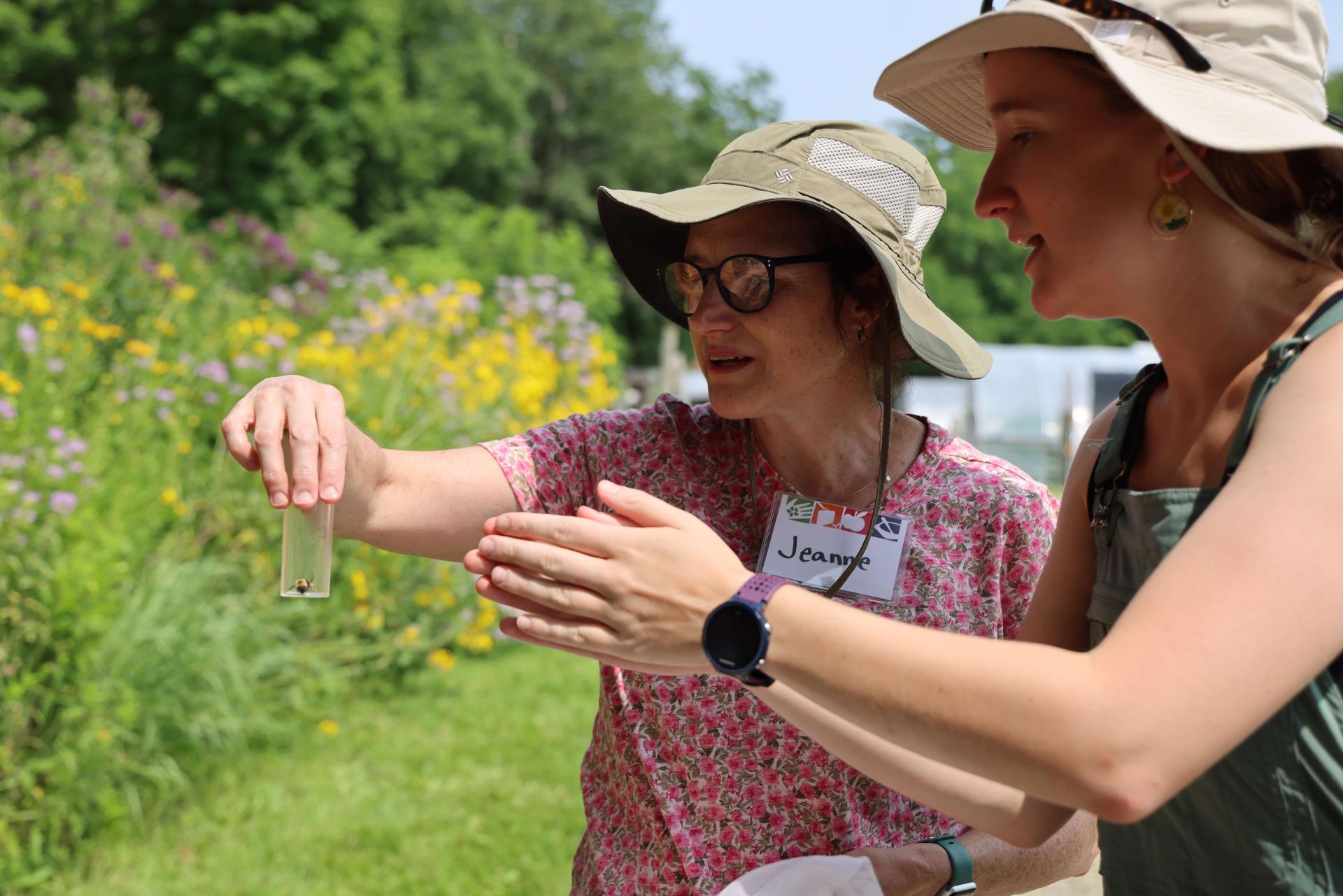
Once she earns her doctorate, she hopes to remain in Vermont/New England, educating and continuing research, "There's so much energy in Vermont about native plants, pollinators, and healthy food systems, and it feels like a really great place to keep doing this work." But she'd also love to educate the public so that one day she's out of a job, "having everybody know the importance of wild pollinators and to be able to take meaningful conservation actions is my ultimate dream."
